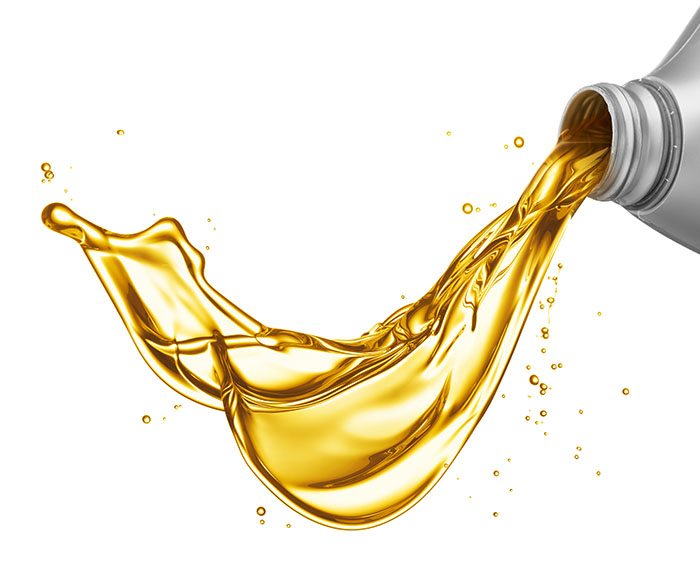Lubrication of moving parts in construction equipment relies on the knowledge and expertise of the operator or the maintenance team this is because without proper application of lubricants in the engine it would probably seize up and the inconvenience of downtime would become a reality. In Africa virtually all plant and equipment used in construction is subjected to extreme working environments in which dust, water and high temperatures are more the rule than the exception.
This makes proper maintenance and care of the equipment all the more critical if you are to enjoy lower down time and increase the lifespan of the equipment. Replacement cost of equipment is high and so the savings to be obtained by postponing this event by ensuring proper maintenance cannot be casually overlooked. A proper oil and lubrication system for construction equipment is one of the sure fire ways to ensure that the machinery will run efficiently and this translates into savings in fuel consumption as well as maintenance costs, however even here using the right oil and lubricants can make the difference between extended useful life or a problematic working life for your machinery.
Now that we agree that the right oils can provide substantial savings for plant operators then the first place to start when getting serious about your oils is to debunk the long held belief that all oils are made the same and work the same way no matter the manufacturer. This is because recent developments in the oil and lubricants industry has seen the emergence of specialized oils that are far more superior than conventional oils in ensuring your equipment remains well lubricated at all times.
Synthetics are clearly superior in the extreme zone where temperatures, high loads or flammability are overriding factors. They also perform well in applications where needs are specific and complex. Synthetics are engineered to meet targeted performance benchmarks, and a synthetic formula can be engineered for almost every combination of properties used in industry.
Lets take a look at what can be referred to as your normal oil. The more conventional oils that are popularly used in machinery today are produced from refined crude oil but even after the refining process, several compounds still remain such as oxygen, sulfur and nitrogen. These compounds cause oxidation and acidity particularly at high temperatures and even encourage the formation of sludge. You may not have known this but in addition to these problems the varying molecules in these lubricants have different shapes and these molecular irregularities means greater friction within the oil itself which reduces the oils efficiency and the overall efficiency of the machinery.
Also Read: How high performance lubricants work
Synthetic oils?
Unlike conventional oils that are refined from crude oil, synthetic oils are engineered from chemical reactions in a controlled environment producing a product that consists of a blend of compounds that are uniformly consistent and therefore offer superior performance that translates to a greater life cycle value for the machinery owner. There are several advantages that synthetic oils have over the conventional oils.
Firstly the purity of the synthetic oils coupled with the stronger bonds developed between molecules means that there is less risk of oxidation. This means that synthetic oils can perform better at higher temperatures. Compare this to conventional oils which because they contain impurities oxidation tends to occur at high temperatures which breaks down the oils integrity creating the need for more frequent oil changes.
Secondly on the other end of the scale conventional oils are also compromised under low temperatures because of the presence of paraffin which reduces the fluidity of the oil. After a long cold night starting up a cold diesel engine to begin the work of the day is a time when greater engine wear and tear is likely to occur. This is because most of the engine oil has settled at the bottom and so it offers less lubrication for the moving parts.
Since conventional oils tend to be less fluid after a cold night this characteristic leads to greater wear and tear on an engine since it takes longer for the oil to circulate throughout the engines parts from a cold start position. Synthetic oils work better here because they maintain their viscosity even at low temperatures which translates to better prevention of wear and tear for cold engine startups.
Efficiency
We have already looked at the improved viscosity of synthetic oils owing to their uniform molecules as compared to conventional oils. In an engine this can be translated to greater efficiency as the oil is more fluid remaining so even at extreme temperatures on both ends of the scale. This means less frequent oil changes and lower running costs.
In a world that is becoming ever more conscious of environmental pollution, it is worth noting that the purity of synthetic oils means that they contribute less to pollution of the environment by reducing harmful engine emissions.
When engine temperatures rise too high it can cause the machine to explode or catch fire with the possible resultant risk of fatalities but certainly serious damage to equipment. In some instances this can be caused by poor lubrication of the moving parts. Synthetic oils have a distinct advantage here because they have higher flash point meaning that the temperature at which they can ignite is much higher than that of conventional oils thus contributing positively to safety.

Thanks for share good information. Found proper knowledge about systhetic oil.